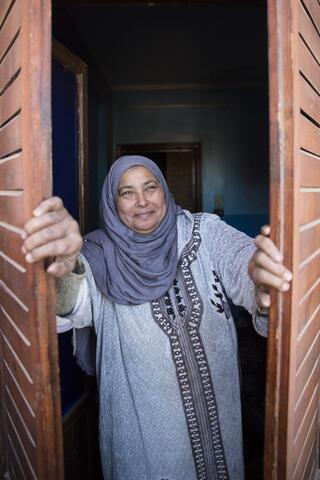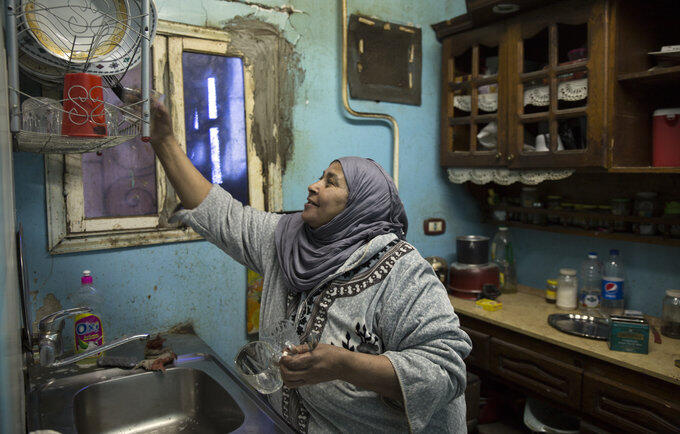Dahab el-Sayed, 60, lives in a marginal neighbourhood of Cairo. She vaguely remembers the excitement in her city when the International Conference on Population and Development (ICPD) took place in 1994. But because she was busy working and caring for her family back then, details about the conference and its impact eluded her.

As a girl, growing up in a poor rural family of 15, Dahab’s choices were limited, and even an education was out of reach.
“There were no opportunities other than marriage—it was the only future I could foresee,” she says.
Dahab recalls the day that a woman came to her house and cut her genitals. Dahab had no idea what was happening, but recalls the pain, the blood, and the powder that was applied to staunch the bleeding. She remembers staying in bed for 15 days to heal. But when she grew older and started a family of her own, she had her own daughter’s genitals cut.
“It was a must,” Dahab says. Her in-laws insisted on it. Marriage prospects depended on it. All the girls were cut back then.
She now believes it is wrong to be subjected to this practice. Her granddaughter has been spared when Dahab learned from a television campaign about the harm female genital mutilation causes, and the fact that the procedure is now illegal. Despite reduction in the practice of FGM among younger generations in the region, it still afflicts 55% of girls aged 15 to 19.
Dahab had four children in quick succession soon after her marriage. Because she always did badly paid jobs—cleaning, laundry, caretaking—she never had health insurance and could not afford to pay for contraception. But intrauterine devices (IUDs) were subsidized in Egypt, so she started using one.
Her husband, an upholsterer, died 20 years ago. Since then, it has been increasingly difficult for her to make ends meet, especially as three of her children have medical conditions that prevent them from working. Soon she will receive a small government pension, but it will not be enough to support her, so she will continue to work.
The ICPD Programme of Action owed its revolutionary nature, in part, to its acknowledgment of the complex interconnections between universal access to reproductive health, women’s empowerment and right to live free from violence, and sustainable development. With an eye on the future, the ICPD acknowledged the need to protect more vulnerable populations like those who live in poverty or in displacement. Dahab grew up in poverty, was married at 13, subjected to FGM and denied an education. None of these afflictions can be separated from the other.
Left out of the transformation the ICPD had promised, Dahab made sure her children did better:
“Girls have a choice now. My daughter had a choice in her own marriage,” Dahab Said, “I educated all my four children. I hope my granddaughters are all educated as well. They don’t have to become doctors and lawyers. I want them to be teachers, educating young students.”
Find out more about how the world has come since the adoption of the ICPD Programme of Action 25 years ago in this year's State of the World Population report (SWOP). Visit the interactive website here.



